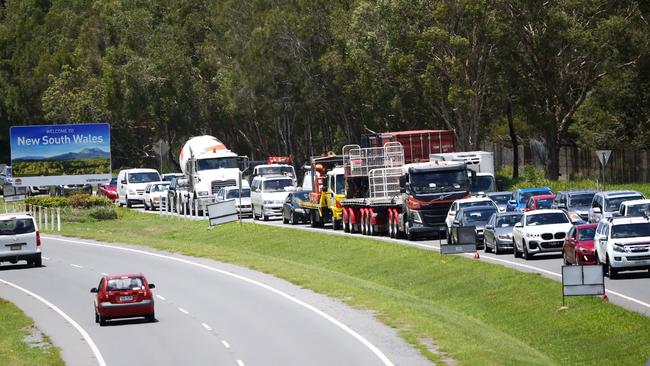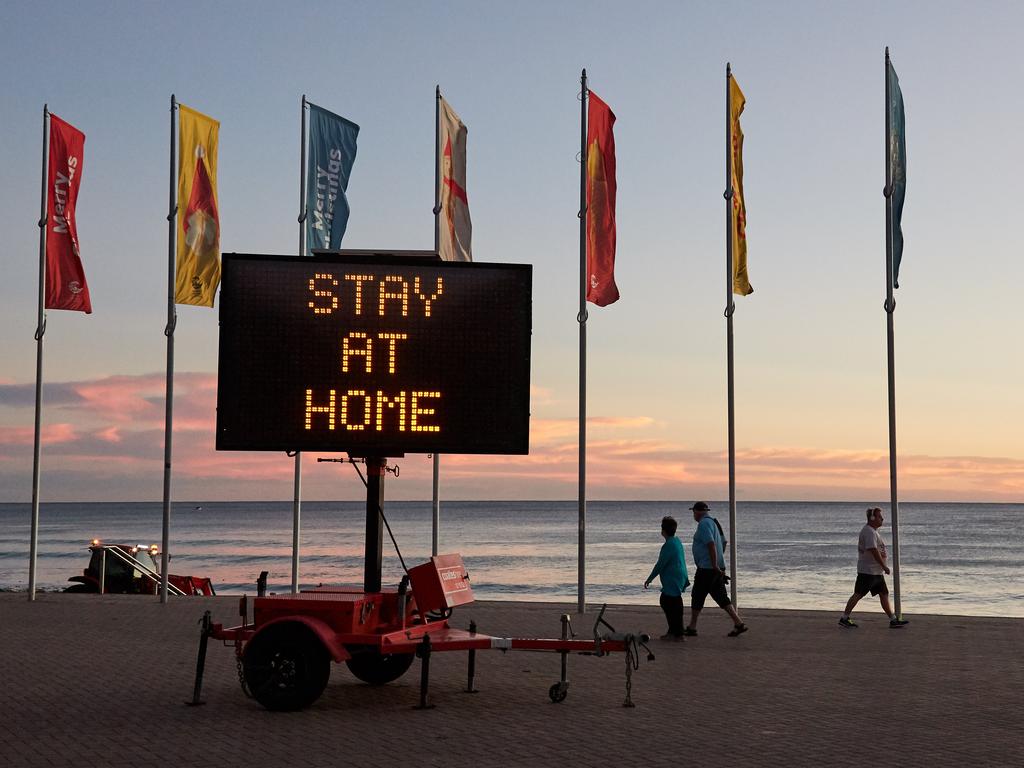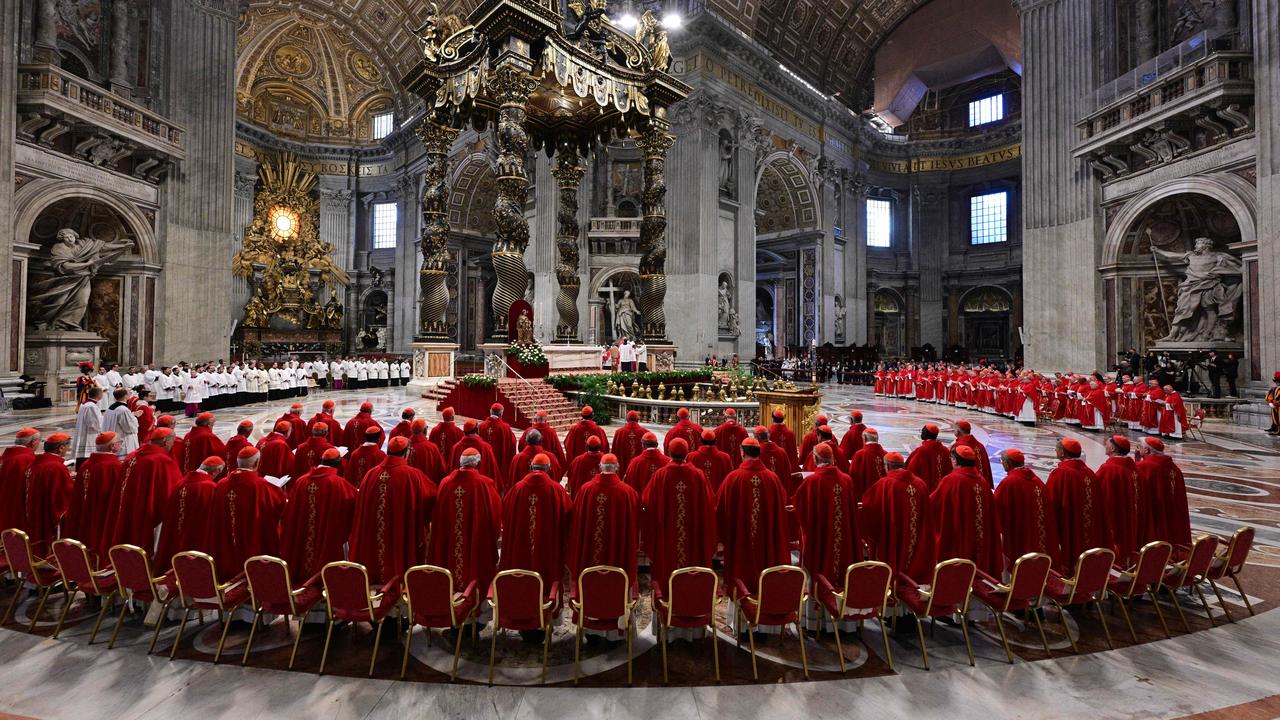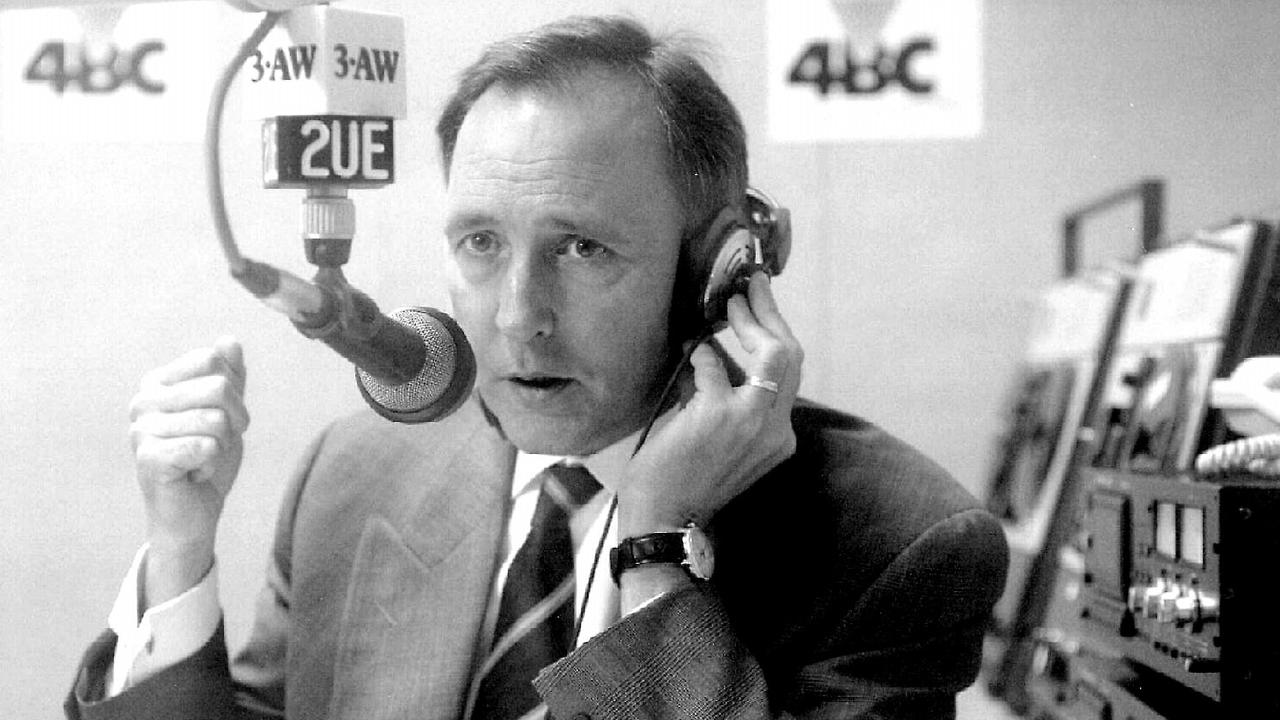
Scott Morrison was right when he said at the start of the pandemic that 2020 could be the worst year of our lives. The challenge is to make sure that it’s just one bad year; and not the start of a dismal decade or a lost generation. That means trying to learn from this experience rather than entrenching what’s unsustainable.
As Health Minister in the Howard government from 2003 to 2007, I massively upgraded the National Medicine Stockpile, including all-but-cornering the world market for antiviral drugs, in anticipation of a possible bird flu pandemic. Back then, the National Pandemic Plan included early international border closures, special isolation facilities, mobile testing and treatment, and ramped up ICUs. It never included, even in its August 2019 iteration, advice to close state borders, shut workplaces and cancel mass gatherings in a moderate pandemic. Its “ethical framework” included “ensuring that the rights of the individual are upheld as much as possible” and “that measures taken are proportional to the threat”.
It’s curious how much of the response to COVID has mimicked the response to the Spanish flu pandemic of a century ago, despite better population health and a vastly improved medical system: with state borders closed, large events banned, hotels and restaurants shut, and compulsory mask-wearing, even though COVID-19 has turned out to be far less dangerous. In Australia, Spanish flu is thought to have killed about 15,000 people from a population of five million. In the US, it killed more than half a million from a population of 100 million. Around the world, it’s thought to have killed upwards of 50 million. Unlike now, it was people in their prime who were most at risk.
Then, there was a stoic acceptance that disease was part of life; now, the emphasis is on banishing disease and stoicism is mostly reserved for the restrictions needed to bring this about; even though the global health impact of this pandemic, so far, is about as severe as the Asian flu pandemic of the late 1950s, and the Hong Kong Flu pandemic of the late 1960s, which both had well over a million deaths worldwide without triggering anything approaching large-scale shutdowns.
My sense is that it’s the seismic cultural shifts, now underway in the West, that have driven a pandemic response that’s so different from that envisaged under plans drawn up even just a short time ago. We are materially rich but spiritually poor, and generally more fearful. More self-confident governments would not have placed so much faith in unelected and unaccountable experts. The experts would not have so readily changed their minds about the need for mandatory shutdowns. Societies that retained more “faith in the world to come” would have been less alarmed by a virus like those that have readily been seen off before.
Yes, but for the social-distancing measures put in place, this pandemic could have been worse. Even so, it’s not realistic to subsidise wages and businesses indefinitely, to shut venues whenever cases spike, and to keep borders closed in the absence of a vaccine that still can’t be counted on — or could take years to become universal; because at some point people will start to count the costs of COVID against the costs of the measures to deal with it. This may already have happened in parts of the US, which seem to be managing the virus rather than trying to suppress it, let alone eradicate it.
For all governments at-all-times, the challenge is to get the balance right between keeping people safe and keeping people free. The way we have expressed this in Australia has been to try to give everyone a “fair go” without restricting individuals’ ability to “have a go”. The pandemic has presented all governments with invidious choices, but especially conservative ones that are normally intent on minimising official intrusions into people’s daily lives.
Largely thanks to the early closure of our international borders, Australia has been remarkably successful in minimising COVID deaths; but with $300bn currently committed, essentially paying people not to work, at what cost to our “have a go” spirit, especially given that finding people to fill jobs — thanks to the higher dole — has become harder than ever?
It’s been instructive to compare the pandemic responses of the Victorian Labor government and the NSW Liberal National one. It’s hard to see any health justification for the curfew and the “ring of steel” around Melbourne. At times, Labor premiers have seemed almost to revel in slamming shut their borders, restricting their businesses, and giving orders to the public. The pandemic has been a plausible rationale for much the bigger and more interfering government that voters would normally reject. The Liberal premiers, on the other hand, certainly NSW’ Gladys Berejiklian, have been reluctant health despots. Their emphasis has been on keeping the economy open as far as possible.
There’s no doubt that ordering people to stay at home for long enough can stop infectious disease in its tracks, as Victoria has shown. But while the memories of this pandemic are fresh, and well before the next one arrives, different potential strategies from attempted eradication, to suppression, to management need much further study and public debate. To what extent should everyone be locked down in order to protect a vulnerable minority; and is there a better option than locking up the elderly on the one hand; or exposing them to premature death on the other, because selective shielding was too hard to manage?
When the Italian hospital system seemed to be collapsing under the strain of COVID cases, a degree of public panic was understandable. But nine months on, with the virus much better understood and much less likely to kill, even here in Australia, it’s still being treated like the grim reaper. More perspective on this virus, at least going forward, could help to dispel the climate of fear that, once created, is hard to shake, and that tends to bring out the authoritarian in officials and the conformist in citizens.
Although conservatism is pragmatic, it’s still a pragmatism based on values. Even for public safety, centre-right governments are reluctant regulators and cautious spenders. What’s important now, if conservatism is not to suffer a serious loss of morale and crisis of conviction, is to wind all this back as quickly as possible; and to try to ensure that the response to the next pandemic is a more sustainable balance between suppressing the disease and suppressing normal life.
“We’re all in this together” has been the pandemic’s background chorus, but that hasn’t been people’s everyday experience, at least after the initial response. Public servants and politicians have had their pay maintained or even increased, while working from home.
While the JobKeeper wage subsidy has lasted, some workers earned far more than usual, but with less actual need to work; while others took substantial pay cuts. Thanks to government decision-making, many business owners saw their income slashed, but not necessarily their expenses.
When state governments get away with imposing tougher restrictions on churches than on brothels and on religious services than on sporting events, keeping state borders closed for months longer than any health imperative could justify, requiring people on the street to produce their “papers” in order to avoid heavy fines, denying sick and dying people ready access to their families because of minute infection risk, failing to notice stormtrooper tactics against people in parks or in their own homes, and announcing draconian new restrictions based on impossible-to-question “expert advice” (that’s invariably not released), public trust is unlikely to be sustained. Our sense of nationhood could take a long time to recover from the Queensland Premier’s declaration that “Queensland hospitals are for Queenslanders”; or the West Australian Premier’s refusal to allow Australians from other states to enter his, even with quarantine.
Always, it’s the job of a thoughtful conservative to question and to doubt; to insist that new measures be justified, and proportionate, especially when change goes counter to considered positions that conservative political movements have been supporting for decades. Of course, as Cicero once declared, “the people’s safety is the highest law” but that hardly makes “safety first” the only principle, or even the first principle that should guide government.
Especially when the impact of action or inaction is speculative; and when not knowing the future makes it hard to decide what to do now; it’s more important than ever not to overreact. Even if Australia’s COVID toll remains low and there’s a quick recovery from the policy-induced economic slump; even if an early vaccine means that Australia does not need to remain closed to the world, this is unlikely to be a time anyone recalls with much pride because so much that’s happened has been out of character with an Australia accustomed “to strive, to seek, to find and not to yield”.
For premiers much more on centrestage than usual; for health officials dictating the terms of daily life; and above all, for the scientists seeking COVID cures, these have been the most bracing of times. For most of us, though, there’s been the dull prospect, not of doing more but of doing less: not “how much more can I do for my country” but “how much less must I do in order to be safe”.
I can’t think of a better way to kick off the new year than with a renewed emphasis on the active virtues and the robust attitudes that have made Australia a country to be proud of. Let’s get back to being people who “have a go”, so that 2020 turns out to be the only year in our history blighted by a focus on what we can’t do, rather than what we can.
Tony Abbott is a former prime minister of Australia. This is an edited extract of his contribution to Cancel Culture and the Left’s Long March by Wilkinson Publishing out in March.






With the pandemic still inhibiting daily life and generating almost unimaginable public spending, even from governments of the centre-right, this is a dispiriting time for those wanting government that’s smaller, tax that’s lower and freedom that’s greater. Yet even in the face of a pandemic, it remains a fact that government can’t spend a dollar that it doesn’t raise today or won’t pay back tomorrow. And once the fear of disease has passed, people’s instinct for freedom will reassert itself.